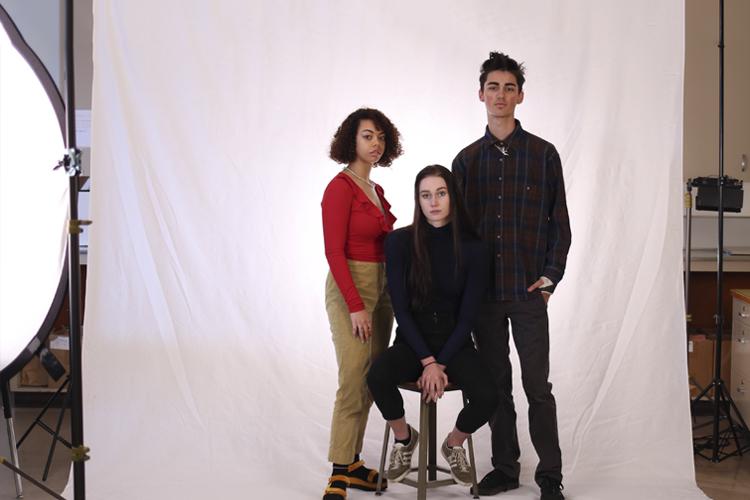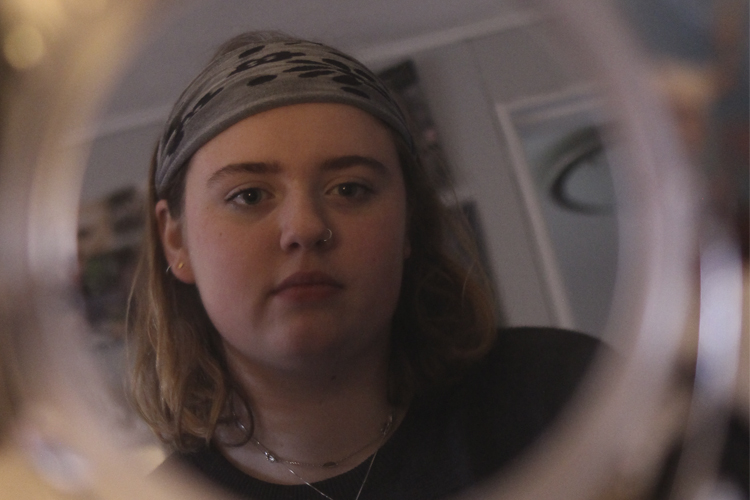Two months ago, I sat in the counseling office during eighth period. My counselor was perched in a swivel chair, looking down at me, and the school psychiatrist stood to my right, analyzing my body language.
I thought we were going to talk about forecasting, but I soon realized this was an entirely different conversation – the one I was trying to avoid.
“A friend of yours came to us earlier in the week and told us you aren’t doing so well … Kana, are you okay?” asked my counselor.
I tried to sit completely still, but thoughts started to bounce around in my head, and I couldn’t help but twitch and fidget.
It was clear that they were beginning to see through the facade that I had kept up for so long.
Because of my insecurity about judgment, I would normally think about how people would react to what I was about to say. But this time, words started to leave my mouth as I expanded on how I felt about others. I didn’t feel empathy, I didn’t feel sorry and I genuinely didn’t care about anything.
“Kana … That sounds a lot like depression,” said the psychiatrist.
I pictured the letters hanging above her in the air. “Depression.” I was labeled. I was diagnosed. I was different.
I am writing this because I need help. For years, I have struggled to be true to myself. I act differently when I am with certain groups of people, whether it’s the way I laugh or the level of confidence I have when entering a room. To some degree, everyone cares about the way that they are perceived, or what their image is — but I got lost in it.
Societal norms have pushed me to believe that every student has their future planned, while I stand alone in trying to figure things out for myself. But I have come to realize that no one has their future set in stone; in fact, we are all in the same position, trying to figure out who we are.
We need to realize that there are boxes that society confines people into, but you shouldn’t force yourself to stay in them.
When I first joined Grant Magazine in 2016, I felt like I didn’t fit in. Design, my first focus, fell through within the first week and I was left without a specialty, something everyone else seemed to have.
However, after a few months, I found a new art form: filmmaking.
Filmmaking gave me that “thing” everyone else seemed to have. But following my first shoot, I began to feel different. Saying I wanted to become Grant Magazine’s next filmmaker did not feel right. My decision to pursue filmmaking felt forced.
I began to lose myself. I became known for the videos I made, and all I could do was play into it. And even though I knew that filmmaking wasn’t for me, I felt I couldn’t quit because of the time I had already dedicated to creating videos.
Eventually, I stopped producing content. I let interviews fall through and lost interest in projects quickly.
When I stopped making videos, the magazine room — a place I had previously felt comfortable in — became a place where I felt I did not belong.
My emotions would bottle up during the day but flood my mind at night, leaving me in bed alone with my thoughts, unable to fall asleep. The combination of sleep deprivation and feeling uncomfortable in classes led me to miss weeks of school and fail courses.
This also affected my family life, resulting in unnecessary fights with my sister and silence when we should have been conversing as a family. I hadn’t told anyone about what I was going through, partially because I thought that what I was going through was normal.
But after opening up to a few friends about how I was feeling, they decided to ask a counselor for help.
I was brought to the counseling office the following week and scheduled to start therapy.
After the first session, I could feel a change in the way my mind worked. It felt good to have someone I could spill everything out to and explore the problems I faced.
Leaving the building, I felt open, like I wasn’t hiding any secrets. Instead of sitting in the car with my shoulders shrugged to make me look smaller, I sat with my back straight, confident that I was headed down the right path. I no longer had to ask myself whether I was acting “normal” or not.
This is just the start: my goal of living a life of truth. One where I am able to walk with my head high and do what feels right without worrying about judgement.
I started writing this piece to help process my thoughts, but also to help other people going through a similar situation. The production of this piece has forced me to reach out to others, making me realize that everyone struggles with being true to who they are.
Through these conversations, I have internalized that I need to do what I think is right and not pursue things because I think people are forcing me to.
Going into my senior year, I want to make sure I enter the school doors with an open mind. Change will be made when it is needed, but not just because someone wants me to.
I have the power to shape my own future, and so do you.







































